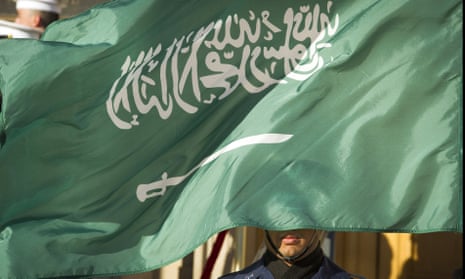Saudi Arabia has executed 37 citizens across the country for alleged terrorism-related crimes, publicly pinning one of their headless bodies to a pole as a warning.
The mass execution on Tuesday was the biggest in a single day in Saudi Arabia since January 2016, when 47 people were killed, including a prominent Shia cleric whose death prompted protests in Iran and the ransacking of the Saudi embassy in Tehran.
The executions took place days after four Islamic State gunmen died while trying to attack a Saudi security building north of the capital, Riyadh, and following Easter Sunday bombings claimed by Isis that killed more than 300 people in Sri Lanka.
The Saudi interior ministry said the killings were carried out in accordance with Islamic law, using language that indicated they were all beheadings. The body of one of the men, Khaled bin Abdel Karim al-Tuwaijri, was attached to a pole for several hours. The display is not typical of the kingdom and was seen as controversial. The ministry did not say where this took place.
The government defends executions as a powerful deterrent.
The ministry said those who were killed had adopted extremist ideologies and formed terrorist cells with the aim of spreading chaos and provoking sectarian strife.
It added that the individuals had been found guilty of attacking security installations with explosives, killing a number of security officers and cooperating with enemy organisations against the interests of the country, and had been ordered to be executed by the specialised criminal court in Riyadh, where terrorism trials take place, and the country’s high court.
The statement was carried across state-run media, including the Saudi news channel Al Ekhbariya. It began with a verse from the Qur’an condemning attacks that aim to create strife and disharmony and warning of great punishment for perpetrators of such acts.
The statement named all those who were killed, including several people from large families and tribes in Saudi Arabia.
The mass execution was ratified by a royal decree. Such actions are traditionally carried out after midday prayers.
